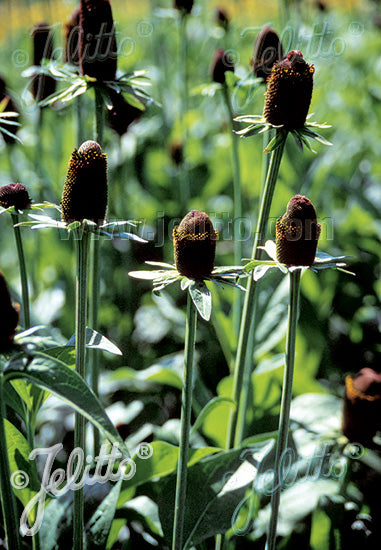Gardener Nation
Rudbeckia occidentalis (Western Coneflower)
Rudbeckia occidentalis (Western Coneflower)
Couldn't load pickup availability
Rudbeckia occidentalis, commonly known as Western Coneflower, is a unique perennial noted for its unusual flower structure. Unlike traditional Rudbeckias, it lacks ray petals, showcasing a prominent, elongated, dark brown to black central cone surrounded by green bracts. The tall, upright stems and lance-shaped green leaves add architectural interest to naturalistic plantings and prairie gardens.
Rudbeckia occidentalis thrives in well-drained, moderately fertile soils and is adaptable to a range of conditions, including moist or dry soils. It is drought-tolerant once established and highly attractive to pollinators such as bees and butterflies. The lack of petals makes it a distinctive addition to borders or meadow plantings, where it pairs well with ornamental grasses, echinacea, or other sun-loving wildflowers. Minimal maintenance is required, but deadheading can prolong the display, and cutting back in fall helps prepare the plant for winter.
Sun Requirements:
Full Sun to Partial Shade. Thrives in full sun but can tolerate partial shade, particularly in hotter climates.
Maximum Growth Height:
36–60 inches (90–150 cm), with a spread of about 12–18 inches (30–45 cm).
Bloom Month:
July to September. Blooms in mid to late summer, with the striking central cones lasting into early autumn.
Share


